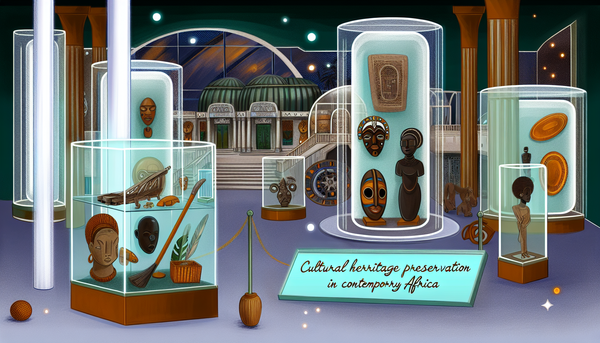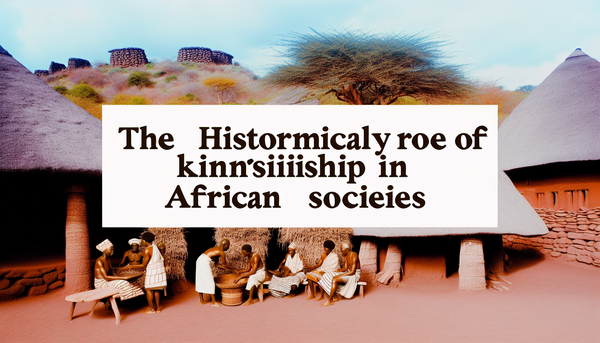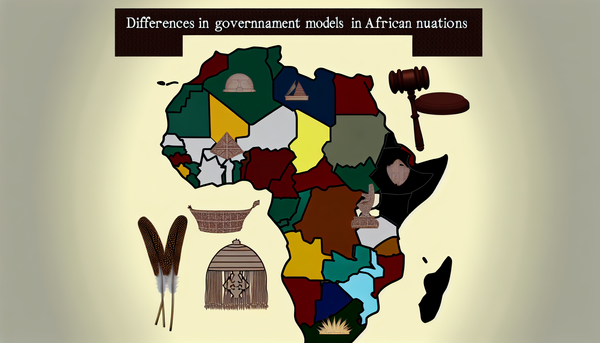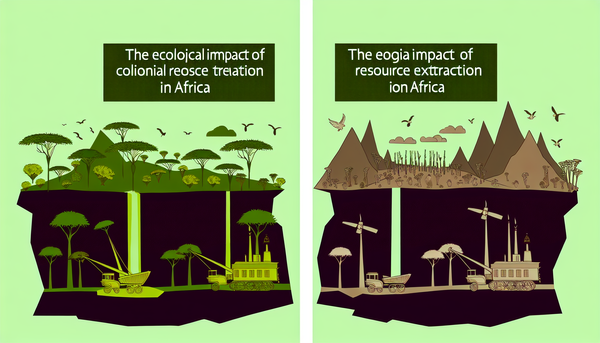African Folklore and Its Role in Community Identity
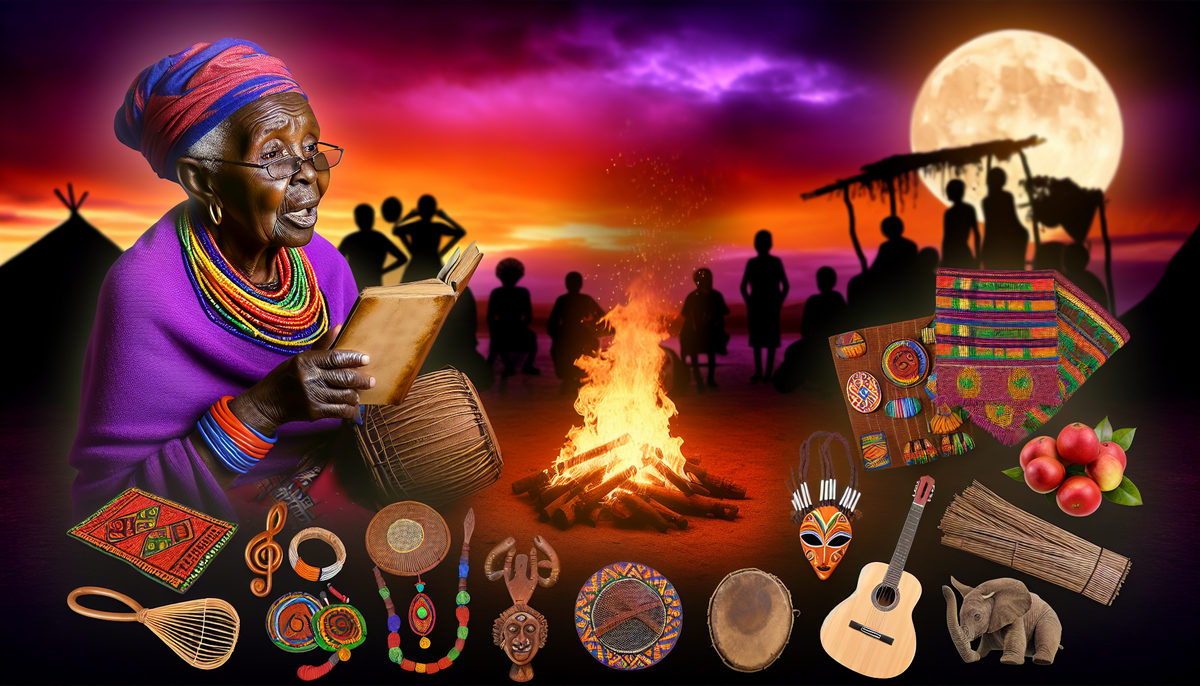
Origins and Evolution of African Folklore
African folklore has deep-rooted origins in the continent's diverse cultures, serving as a vital medium for the transmission of beliefs, values, and traditions. In many African societies, oral tradition was the primary method for sharing stories, encompassing myths, legends, fables, and proverbs that reflect the communal worldview. These narratives often personify elements of nature, ancestral figures, and spirit beings, conveying moral lessons and cultural heritage.
The evolution of African folklore can be traced back to ancient civilizations, where storytelling played a crucial role in religious ceremonies and communal gatherings. As societies evolved, so too did their folklore, incorporating influences from various cultural interactions, including trade and colonial encounters. The fusion of indigenous beliefs with external elements has enriched folklore, leading to unique regional variations.
Furthermore, African folklore is dynamic, continually adapting to contemporary societal changes. Today, it remains a significant vehicle for cultural identity, uniting communities through shared narratives and values. Modern media and literature have also embraced folklore, inspiring new interpretations while striving to preserve traditional forms. This evolution underscores the resilience of African storytelling, ensuring that it remains a vibrant part of the continent's cultural landscape.
Cultural Significance of Traditional Stories
Traditional stories hold immense cultural significance in African societies, functioning as the backbone of community identity and cohesion. These narratives serve not only as entertainment but also as vital tools for education, transmitting knowledge, morals, and cultural values from one generation to the next. Through tales of courageous heroes, wise elders, and mischievous tricksters, communities instill ethical principles and social norms in their young ones, guiding their behavior and helping them navigate the complexities of life.
Moreover, traditional stories encapsulate historical experiences, struggles, and triumphs, fostering a sense of belonging and pride among community members. They connect individuals to their ancestry and roots, reinforcing the importance of heritage and tradition. This connection is particularly significant in societies that have faced colonialism and globalization, as folklore helps preserve unique cultural identities against a backdrop of rapid change.
Additionally, traditional stories often serve as a means of collective memory, allowing communities to reflect on their past and draw lessons for the future. Through storytelling, the wisdom of ancestors is honored, ensuring that cultural narratives remain alive and relevant. Ultimately, traditional stories are a testament to the resilience and creativity of African cultures, showcasing their ability to adapt while maintaining core values and beliefs.
Social Functions: Unity, Morality, and Education
The social functions of African folklore are multifaceted, playing a crucial role in fostering unity, morality, and education within communities. These traditional stories serve as a unifying force, bringing people together during communal gatherings such as storytelling sessions, festivals, and rituals. By sharing common narratives, individuals strengthen their bonds, reinforcing a sense of belonging and collective identity. This communal participation is vital for maintaining social cohesion, especially in culturally diverse societies.
Moreover, African folklore is replete with moral lessons, imparting ethical values that guide individuals’ behavior and decision-making. Through the exploits of legendary figures and moral tales, these narratives often illustrate the consequences of both virtuous and immoral actions, encouraging adherence to communal values such as honesty, respect, and perseverance. This moral grounding is particularly important in formative years, as children learn from the experiences of characters within these stories.
In addition to promoting moral education, folklore serves as an informal educational system, transmitting knowledge about nature, social roles, and practical skills. Elders, as custodians of these stories, play a vital role in educating the younger generation, ensuring that traditional wisdom and cultural practices are preserved and adapted over time. Through this interplay of unity, morality, and education, African folklore remains a vital aspect of social life.
Folklore Variants Across Different Tribes
African folklore is incredibly diverse, displaying a rich tapestry of variants across different tribes and regions. Each ethnic group possesses its own unique narratives, themes, and storytelling styles, reflecting the distinctive cultural and historical contexts from which they arise. These variations often encompass local geography, societal values, and historical experiences that shape the collective consciousness of each community.
For instance, the trickster figure is prevalent in many African tales, such as Anansi the Spider in West African folklore and the Tortoise in the tales of various southern African cultures. While both characters share similar traits—cleverness and resourcefulness—their stories and moral lessons differ, illustrating how each culture interprets these archetypes.
Additionally, themes such as creation myths, hero journeys, and conflicts between good and evil can be found across different tribes but are often flavored with local perspectives. The narratives of the Maasai may highlight relationships with nature and cattle, while those of the Yoruba celebrate lineage and spirituality.
These folklore variants not only enrich the cultural landscape of Africa but also foster an appreciation for the continent's diversity. The exchange of stories and ideas between tribes further enhances this cultural dynamism, making folklore a living tradition that evolves while honoring its roots.
Influence on Modern Arts and Media
African folklore continues to exert a profound influence on modern arts and media, shaping various creative expressions across the globe. Its rich narratives, vibrant characters, and moral themes have inspired countless artists, filmmakers, and writers, leading to a resurgence of interest in traditional stories within contemporary contexts. Through adaptations of folklore, creators are able to bridge cultural divides, presenting African heritage to diverse audiences while preserving its intrinsic value.
In literature, notable authors such as Chimamanda Ngozi Adichie and Ngũgĩ wa Thiong'o incorporate elements of folklore into their works, blending traditional themes with modern storytelling techniques. This not only revitalizes ancient narratives but also invites readers to explore and reflect on the relevance of these stories in today’s world.
Moreover, the influence of African folklore is evident in film and theatre, with productions that celebrate traditional tales and theatrical styles. Movies like "Black Panther," enriched by African cultural motifs and folklore, showcase how these narratives can be woven into mainstream storytelling, resonating with audiences worldwide.
Additionally, visual arts and fashion often draw inspiration from folklore, embracing motifs, symbolism, and themes that reflect the richness of African heritage. This interplay between tradition and modern creativity highlights the enduring legacy of folklore, proving its vital role in contemporary artistic expression.
Preservation Efforts and Challenges
Preserving African folklore is crucial for maintaining cultural identity, yet it faces significant challenges in a rapidly changing world. As globalization and modern technology reshape societies, traditional storytelling practices are at risk of fading into obscurity, particularly in urbanized areas where younger generations may be less engaged with their cultural heritage.
Efforts to preserve folklore are diverse and ongoing. Many communities have implemented initiatives aimed at documenting oral traditions, such as recording storytelling sessions and creating archives of spoken narratives. Educational programs are being developed to teach the importance of folklore in schools, encouraging young people to appreciate and participate in their cultural heritage. Organizations and NGOs are also promoting folklore through festivals, workshops, and multimedia projects, encouraging intergenerational dialogue around these vital narratives.
However, challenges persist. The influence of Western media often overshadows local stories, making it difficult to capture the attention of youth. Furthermore, economic pressures may divert focus from traditional practices toward more lucrative pursuits. Environmental degradation also threatens the contexts often linked to folklore, especially in rural communities. Addressing these challenges requires comprehensive strategies that combine community engagement, education, and advocacy, ensuring the survival of African folklore for future generations.
Global Impact and Interpretations
The global impact of African folklore extends far beyond its cultural origins, influencing various art forms, literature, and even social movements worldwide. As African diaspora communities share their stories in new contexts, folklore serves as a powerful means of cultural expression, fostering a sense of identity and belonging among individuals separated from their ancestral roots.
International literature and cinema have embraced African folkloric elements, often reinterpreting them through a contemporary lens. Works by authors such as Toni Morrison and Ben Okri reflect how indigenous narratives inform their storytelling, addressing themes of resilience, community, and spirituality that resonate across cultures. Similarly, films inspired by African folklore, like "The Lion King," incorporate traditional narratives, reinforcing their universal themes of heroism, morality, and the interconnectedness of life.
Furthermore, the resurgence of interest in African folklore has sparked global discussions around representation, authenticity, and cultural appropriation. As artists and creators draw inspiration from these rich stories, the conversation invites critical examination of the ethics surrounding cultural borrowing. In this way, African folklore not only enriches global artistic landscapes but also offers valuable insights into storytelling's role in forging connections and understanding among diverse peoples, fostering unity and respect for cultural heritage.
